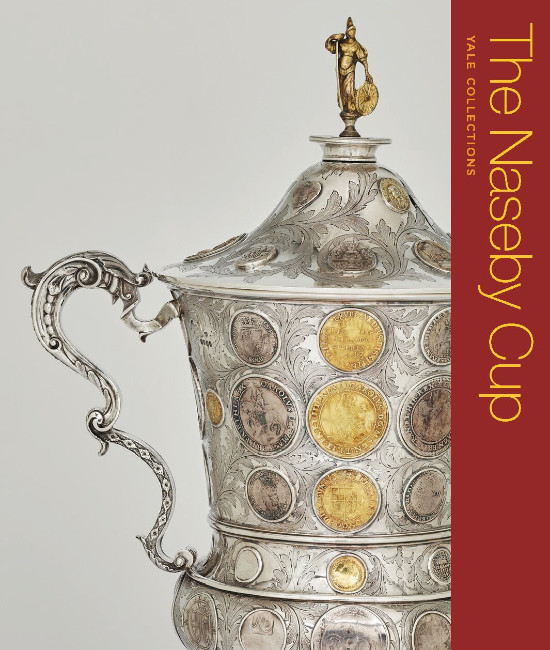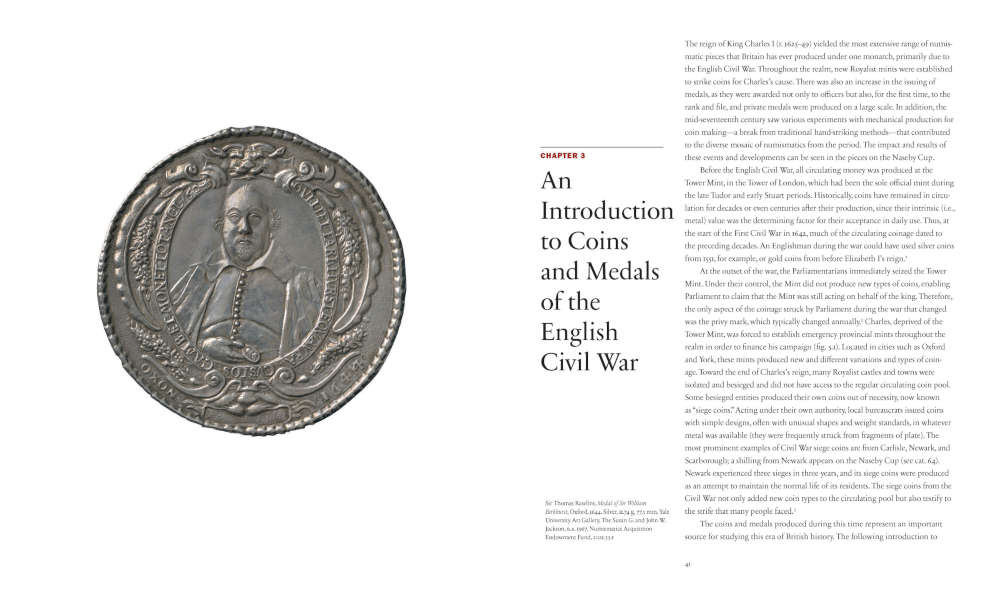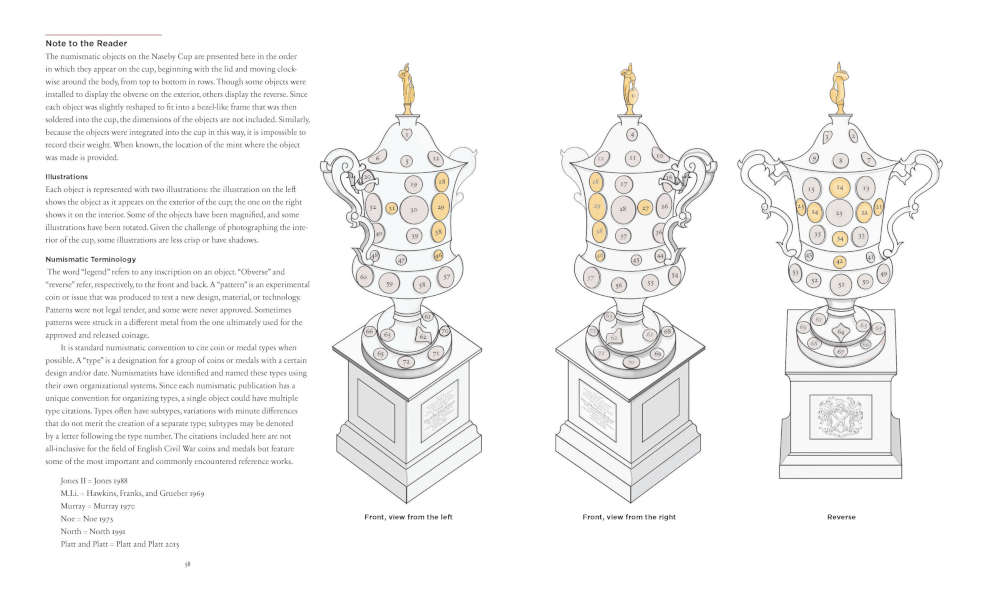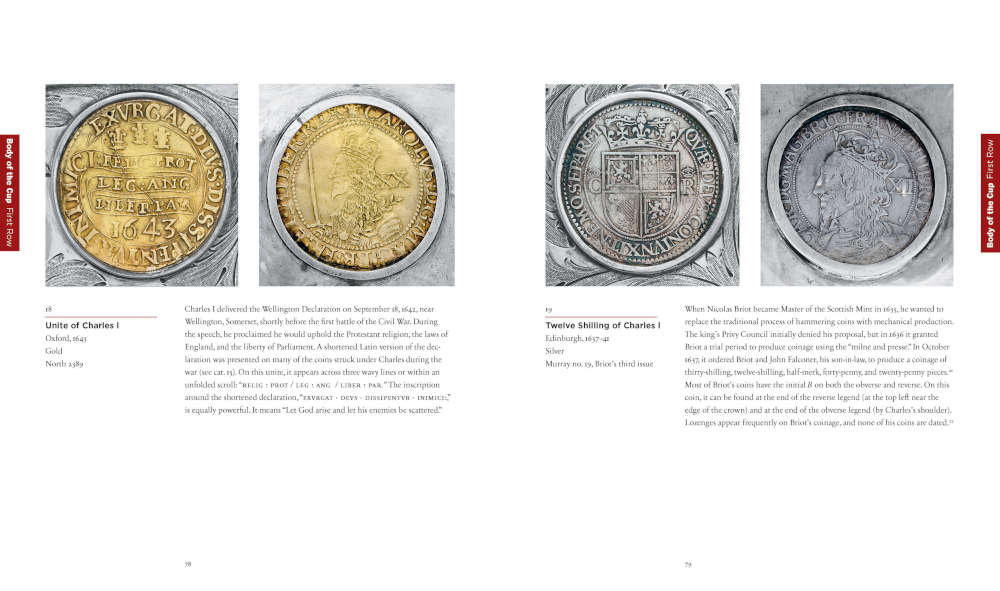The Naseby Cup – Coins and Medals of the English Civil War
The Naseby Cup is a Victorian vessel of extraordinary numismatic importance, as many incredibly rare coins from the English Civil war are integrated into it. A publication on the cup and its coins will soon be available.
One of the most exceptional numismatic objects in the world, the Naseby Cup in the Yale University Art Gallery was commissioned by John and Mary Frances Fitzgerald, Lord and Lady of the Manor at Naseby, in Northamptonshire, England. It commemorates the Battle of Naseby on June 14, 1645, during which the forces of the English Parliament, led by Oliver Cromwell and Sir Thomas Fairfax, defeated the Royalist army of King Charles I.
Crafted by silversmiths Charles Reily and George Storer and completed in 1839, the intricately decorated Victorian cup stands more than two feet tall and features 72 coins, counters, and medals from the English Civil War period (1642–51). Many of these numismatic pieces are extremely rare, such as a New England Shilling from 1652 and a copy of an original 1644 Oxford Crown of Charles I, which depicts the king on horseback and a view of the city.
The cup is innovatively designed so that both the front and back of each piece are visible, one on the cup’s exterior, one on its interior. Integrating numismatics into the larger study of both art and history, this publication offers an in-depth look at the Naseby Cup and its many layers of meaning.
Benjamin D.R. Hellings publishes a detailed presentation of the iconic Naseby Cup that illuminates the Victorian vessel’s extraordinary numismatic importance and contextualizes the circumstances surrounding its creation.
Benjamin D.R. Hellings is the Jackson-Tomasko Associate Curator of Numismatics at the Yale University Art Gallery.











